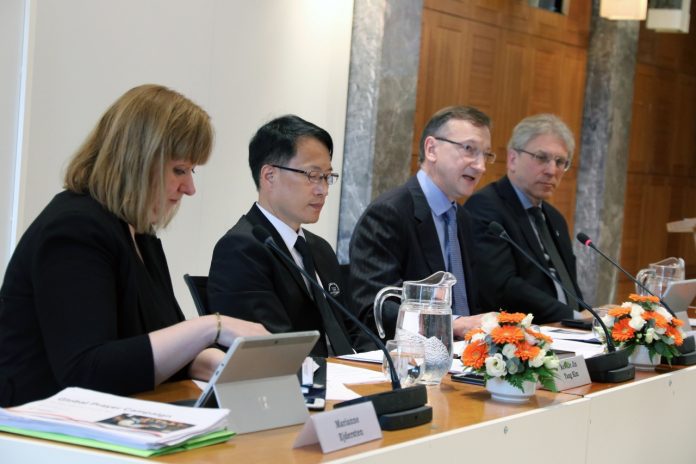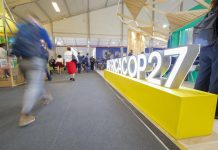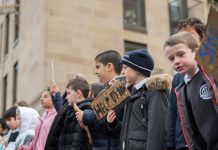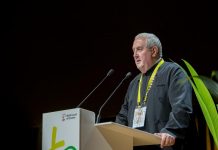
With the announcement on 6 February of a Global Prayer Campaign for peace on the Korean Peninsula, World Council of Churches (WCC) leaders and partners looked back at 30-plus years of history and forward to events planned for 2020.
The WCC’s investment in the search for peace and reconciliation on the Korean Peninsula dates back more than 30 years, noted Peter Prove, WCC director of international affairs. In 1984, the Tozanso Consultation formed a vision for WCC to facilitate opportunities for Christians from both North and South Korea to meet in dialogue. In 1985, a WCC delegation visited the Democratic People’s Republic of Korea, marking the first official direct ecumenical contact with the Korean Christian Federation (KCF) of North Korea.
“Then, in 1986 the Glion Consultation provided some very emotional moments for many of the participants,” Prove said, recalling that this gathering brought together Christians from both North and South Korea for the first time, to join in prayer and celebration of the Eucharist, a powerful experience of Christian unity in the midst of division.
Prove witnessed the same kind of emotion when a North Korean delegation from the KCF visited the WCC to take part in the WCC’s 70th anniversary celebration in June 2018, and when Pope Francis met with a combined group of North and South Korean Christians as he also visited the WCC. “North and South Korean Christians were gathered together and celebrating in obvious joy and love for each other,” said Prove.
The WCC’s involvement extends beyond prayer and encounter, to responding to humanitarian need, added Prove. “When the great famine broke out in the early 1990s, the WCC was responsible for channeling some $43 million worth of humanitarian aid,” he noted.
The WCC also keeps the push for peace alive via the Ecumenical Forum for Peace, Reunification and Cooperation on the Korean Peninsula. “The WCC is responsible for convening and leading this forum, which continues to grow and expand, and bring in new partners,” explained Prove.
What is the most powerful impetus for peace, then and now? “People-to-people encounter,” said Prove. “As simple and also as powerful as that is, people-to-people encounter is a fundamental foundation for seeking peace and reunification, and continues to be both the means and the purpose of WCC’s work for peace in the region.”
In full swing for 2020
Rev. Dr Jin Yang Kim, WCC programme executive and assistant coordinator of the Ecumenical Forum for Korea, gave an update on activities and events planned for 2020. “We are in full swing,” said Kim. “We are so ambitious for so many activities and events that will be going on this year.”
A meeting of the Ecumenical Forum is planned to take place in Cambodia in April. Then, in June, the National Council of Churches in South Korea and the National Council of Churches USA will hold a peace consultation that will solidify the ecumenical bond between the two organizations in supporting peace. In connection with that consultation, a worship service will take place in St Mark’s Episcopal Cathedral in Washington, DC. “Victims of the Korean war will be invited, and US veterans who served in Korean war will be invited for a reconciliation service,” said Kim.
In addition, in June a peace conference will be held at the Presbyterian Church of the USA General Assembly in Baltimore, followed the next day by a peace treaty march in Washington, DC in front of the White House, hosted by the Peace Committee of the United Methodist Church and Korea Peace Now which is a global coalition of women’s peace organizations.
Some events will also feature global partnerships that promote solidarity. In July, for example, a WCC Women’s Pilgrim Team Visit to Korea will help announce the People’s Peace Treaty at the Demilitarized Zone to urge the replacement of the Armistice Agreement with a peace treaty.
WCC, oikoumene.org














